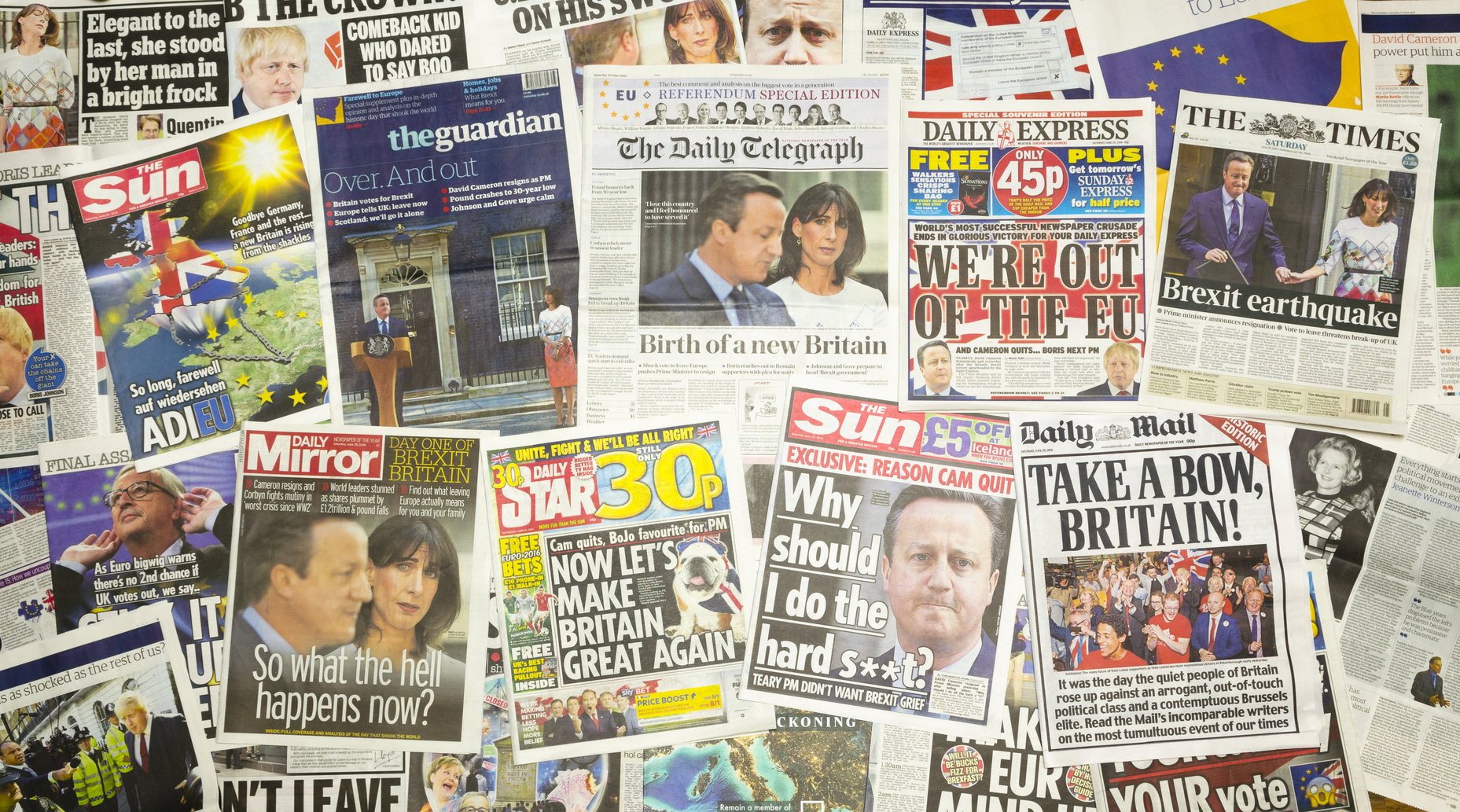6 things designers should consider following Brexit
Design Business Association head of services Adam Fennelow takes us through the results of a DBA member survey revealing members’ main post-Brexit fears and insights into how designers can benefit from the situation.

The Design Business Association surveyed its membership three weeks after the Brexit vote to get a snapshot of how the industry is feeling. Despite the tangible and real sense of unease around the uncertainty Brexit has created, the industry continues to be optimistic, and there will be many who grasp the opportunities that change brings with both hands.
One member, Make It Clear member Jay Nicholl, says: “Design is about embracing change and realising the opportunities it brings. We only do our jobs if we help our clients change something.
“Design can be a positive force for encouraging clients to embrace the change that the referendum result will bring, helping frame challenges as opportunities and designing solutions.”
The success of the industry moving forward depends a great deal of course upon the ability of the government to bring stability and reassurance that trade, free movement of talent and international relations will be prioritised and supported during the EU negotiations.
Government will need to invest in creative industries
In addition the government will need to invest in and nurture the future of creative talent in the UK. The recent EBACC decision presents a worrying outlook on how government views creative thinking and its potential to differentiate the UK. Without the flow of creative talent coming through the pipeline either from UK schools, or through immigration, creative talent could be severely compromised.
This is where a strong trade association is essential. The DBA will be lobbying government and business at every opportunity, spreading the message that UK design is a potent business asset and a sound commercial investment.
The findings of the survey are currently being fed into work the DBA is doing with the Creative Industries Federation, and the Creative Industries Council, as well as guiding our direct discussions with government in the coming months.
Our members have shown us that there are three main areas that they are concerned about and three areas, which are can become opportunities.
Top three concerns
- Education, flow of talent and the need to grow creative skills in the UK
Design operates on a global stage, and a broad international perspective is imperative for creative ability and essential to help drive up standards. We need the best of the best. If the flow of creative talent through immigration is restricted, the pressure is on the government to support the design industry and education sector to develop home-grown talent, by investing in and championing creative subjects. And why do they need to? Because the creative industries contribute massively to the UK economy, and design is the fastest growing sector within it.
- Brand UK
Is the UK going to be viewed as too insular to be able to offer a valid global perspective when delivering creative work? The cultural richness of our creative industries is fundamentally important. All UK businesses will need to communicate skilfully and loudly to the world – design agencies can help with this.
- EU funding / access to work
Consultancies that work with public sector, cultural institutions, charities, higher education, research and similar sectors are concerned that work flowing through EU funded projects will reduce. Also that UK design consultancies will now be cut off from access to the database of large EU tenders, which EU regulations require to be shared widely across member states. Government must ensure that small companies are able to go for, and win, government tenders.
Top three opportunities
- Spending cut backs vs competitiveness of UK design rates
Fluctuating sterling, business uncertainty and the potential for those who only see design as a commodity to cut that spend first are all seen as barriers to growth. But as sterling remains weak, the opportunity increases to win more overseas projects, as UK agencies become more competitive on price.
- Commissioning design is part of the solution to growth out of Brexit
Change requires communication and design does some of its best and most effective work in dynamic environments. As real and perceived challenges arise, design agencies are well placed to help their clients navigate them. Design is an investment, not a cost and it demonstrates ROI time and time again.
- UK design is global design
The onus is on us now to develop new ways of doing international business. It’s a global marketplace and there’s a clear opportunity for British design to grow its status across the globe.
-
Post a comment




